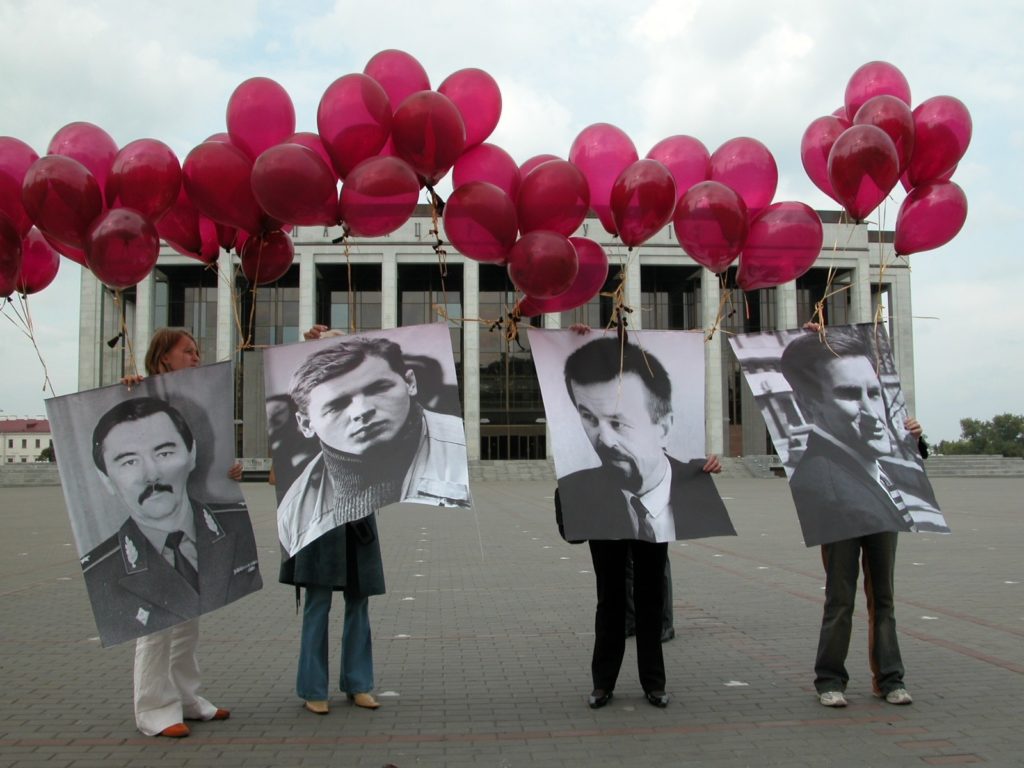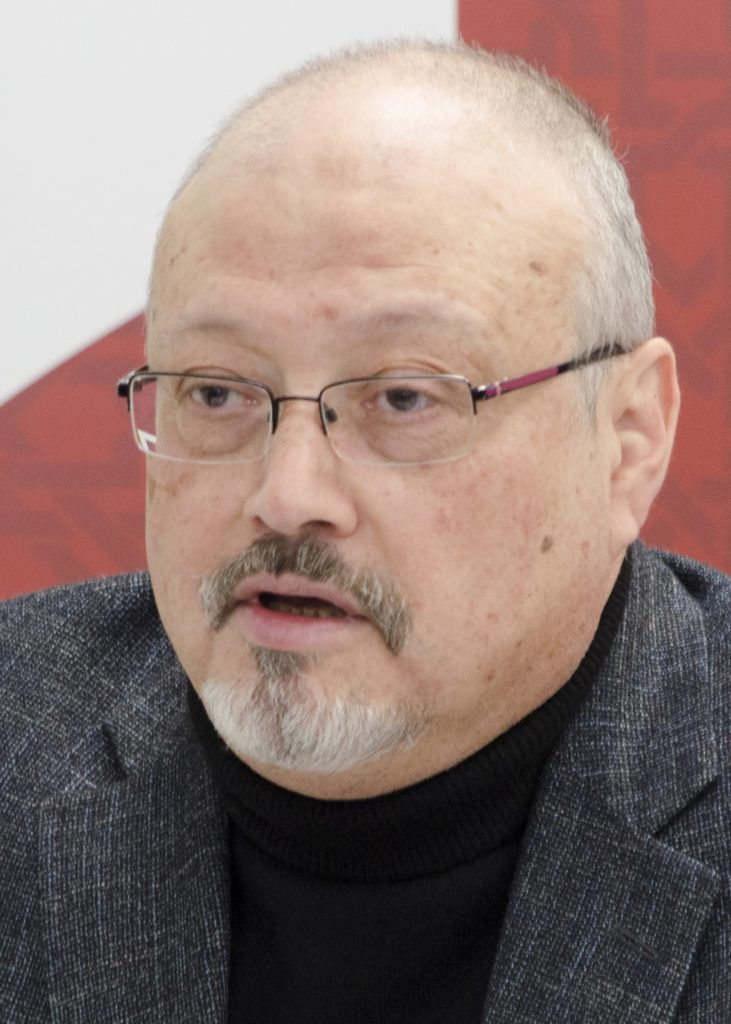Libya must investigate enforced disappearance of two opposition leaders
On the eve of the United Nations Human Rights Council review of Libya’s human rights record, TRIAL (Track Impunity Always) submitted today two new cases of enforced disappearances against Libya to the United Nations Human Rights Committee. The organization calls upon the Human Rights Council to put accountability of human rights offenders on the table.
The cases of Izzat Yousef Al-Maqrif and Jaballa Hamed Matar
Mr. Izzat Yousef Al-Maqrif and Mr. Jaballa Hamed Matar were both high-level opposition figures to the regime of Colonel Gaddafi. They lived in exile in Egypt until 1990, when they were arrested by Egyptian authorities, handed over to Libya and taken back to their country. They have since disappeared.
 Mr. Izzat Yousef Al-Maqrif was a member of the Libyan army until 1973 when he was accused of taking part in an attempt to overthrow the government of Colonel Gaddafi and held in prison for almost one year after which he was discharged from the army. Mr. Izzat Yousef Al-Maqrif and his family fled the country in 1981 and lived from 1984 onwards in Cairo, Egypt. There, he exercised activities as a senior member of the Executive Committee of the National Front for the Salvation of Libya (NFSL).
Mr. Izzat Yousef Al-Maqrif was a member of the Libyan army until 1973 when he was accused of taking part in an attempt to overthrow the government of Colonel Gaddafi and held in prison for almost one year after which he was discharged from the army. Mr. Izzat Yousef Al-Maqrif and his family fled the country in 1981 and lived from 1984 onwards in Cairo, Egypt. There, he exercised activities as a senior member of the Executive Committee of the National Front for the Salvation of Libya (NFSL).
 Mr. Jaballa Hamed Matar was also arrested in 1970 and detained for 6 months. He worked a few years for the government and then he resigned because of a policy disagreement. He worked as a businessman from 1973 to 1978 in Libya but, realising it was no longer safe to remain in Libya, joined his family in Egypt in 1979, where they spent a further 11 years in exile. While in Cairo, Mr. Jaballa Hamed Matar was a member of the Executive Committee of the NFSL. As such, he wrote many articles calling for democracy, the rule of law and justice in Libya.
Mr. Jaballa Hamed Matar was also arrested in 1970 and detained for 6 months. He worked a few years for the government and then he resigned because of a policy disagreement. He worked as a businessman from 1973 to 1978 in Libya but, realising it was no longer safe to remain in Libya, joined his family in Egypt in 1979, where they spent a further 11 years in exile. While in Cairo, Mr. Jaballa Hamed Matar was a member of the Executive Committee of the NFSL. As such, he wrote many articles calling for democracy, the rule of law and justice in Libya.
Arrest in Egypt and enforced disappearance in Libya
Mr. Izzat Yousef Al-Maqrif and Mr. Jaballa Hamed Matar were interrogated on 4 and 5 March 1990 by agents of the Egyptian State Security Investigation Bureau, and their passports confiscated.
On 12 March 1990, they were again arrested by Egyptian security personnel, handed over to Libyan officials and transferred by plane to Libya. They were never seen again by their family.
Even though Libya has constantly denied having arrested and detained the two opposition figures, Mr. Izzat Yousef Al-Maqrif and Mr. Jaballa Hamed Matar have sent letters to their families written in Abu Salim prison and clandestinely smuggled out. Although their relatives have had no direct news from them since approximately 1995, information that one of them was still alive in 2002 has filtered out.
For Philip Grant, director of TRIAL, «the evidence clearly shows that the two victims were taken back to Libya and secretly imprisoned there for years. Such actions are consistent with past practices of abduction or assassination of opposition figures by the Libyan State». Enforced disappearance is a crime under international law. «The victims’ family members now deserve to know the truth», Grant added.
Universal Periodical Review
On 9 November 2010, Libya will undergo its Universal Periodical Review before the UN Human Rights Council. On this occasion, TRIAL calls upon the members of the Human Rights Council to insist upon Libya’s obligation to investigate cases of enforced disappearances, extrajudicial killings and torture, and bring to justice those responsible for such deeds.
Context
Since the coup that brought Colonel Gaddafi to power in 1969, many opposition groups to his regime have been created abroad. One of the most important of the opposition groups was the NFSL, which opposed military and dictatorial rule in Libya, and called for a democratic government with constitutional guarantees, free elections, a free press, and separation of powers among the executive, legislative, and judicial branches. The enforced disappearances of Mr. Izzat Yousef Al-Maqrif and Mr. Jaballa Hamed Matar, two high-ranking members of an opposition party operating abroad, took place in the context of the repression implemented by the Libyan government against members of those groups.
About TRIAL
TRIAL is a Geneva-based NGO active in the field of international justice, enjoying consultative status with the UN ECOSOC. TRIAL has brought close to 60 cases of enforced disappearances, extrajudicial killings and torture to various human rights organs, including the European Court of Human Rights and the UN Human Rights Committee.
TRIAL has no affiliation whatsoever to any organization, party or group active in Libyan politics, in particular to the NFSL. The NGO’s sole interest lies in the upholding of human rights standards and the struggle to bring perpetrators of grave human rights violations to justice.
For more information
Q & A
Are the two victims dead or alive?
- No one knows whether or not they are still alive. In 1996, up to 1,200 prisoners were massacred in Abu Salim prison, where both men were held. It is not known whether they were amongst those killed. Information from a former inmate has filtered out that one of the two men was still alive in 2002.
Why were the two cases not brought against Egypt as well?
- Egypt ratified the International Covenant on Civil and Political Rights in 1982, but not its Optional Protocol, which allows individuals to bring their case before the Human Rights Committee. Still, Egypt is bound to respect the rights enshrined in the Covenant, which it obviously did not do in the present case. As the victims have no possibility to submit their case to the Human Rights Committee, only Libya will be party to the proceedings.
What can be expected of the Human Rights Committee?
- TRIAL expects the Human Rights Committee to rule that Libya is responsible for the enforced disappearance of Izzat Al-Maqrif and Jaballa Matar and has thus violated a number of provisions of the Covenant. If such is its conclusion, the Committee will further require Libya to take the necessary measures in order to investigate the two cases, bring the perpetrators to justice, unveil the fate and whereabouts of the victims and offer measures of reparation to their families.
Have other cases been filed against Libya before the Human Rights Committee?
- Four previous cases have been filed against Libya by TRIAL in collaboration with Al Karama for Human Rights before the Human Rights Committee. These are cases of arbitrary detention, torture, enforced disappearance and other grave human rights violations. These cases are ongoing.
- Libya has been found in violation of the Covenant in eight other cases so far (none of which have been filed by TRIAL).
What is the difference between the Human Rights Council and the Human Rights Committee?
- The Human Rights Council is the political intergovernmental body within the UN system in charge of human rights issues. Its main role is to address situations of human rights violations and make recommendations concerning them.
- The Human Rights Committee is a body of independent experts that monitors the implementation of the International Covenant on Civil and Political Rights by the State parties. It has multiple functions, among which is the competence to examine individual complaints regarding alleged violations of the Covenant by the State parties (where they have ratified the Optional Protocol to the Covenant).









